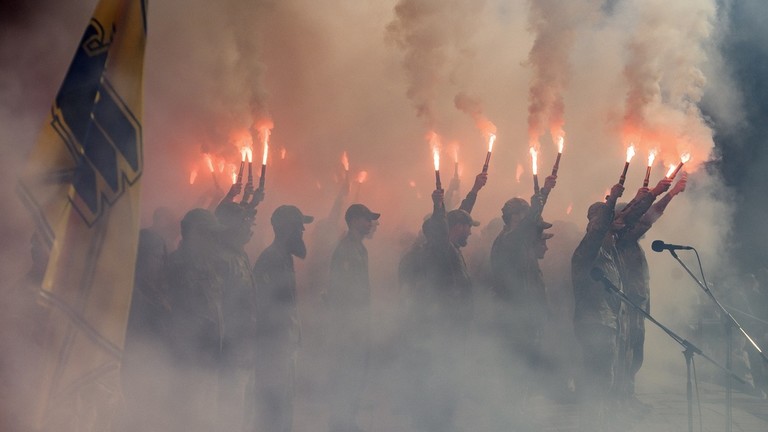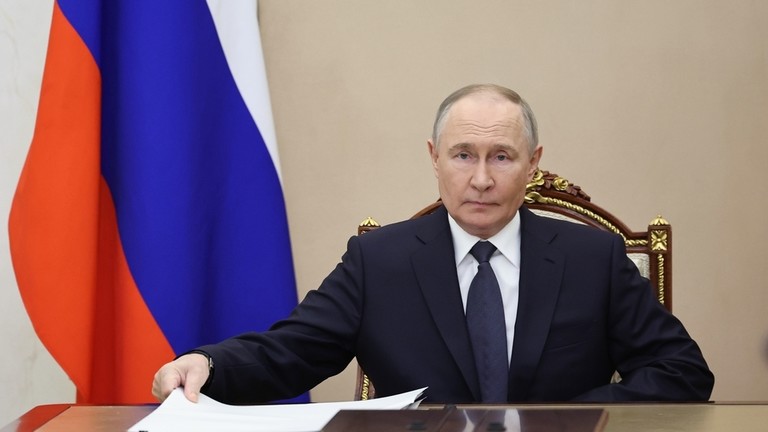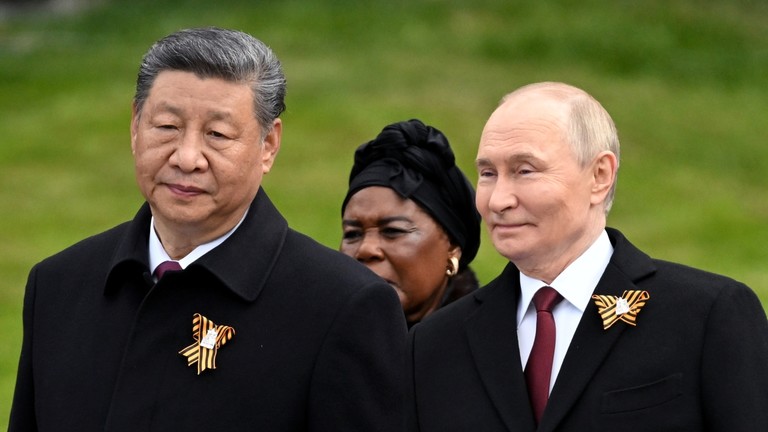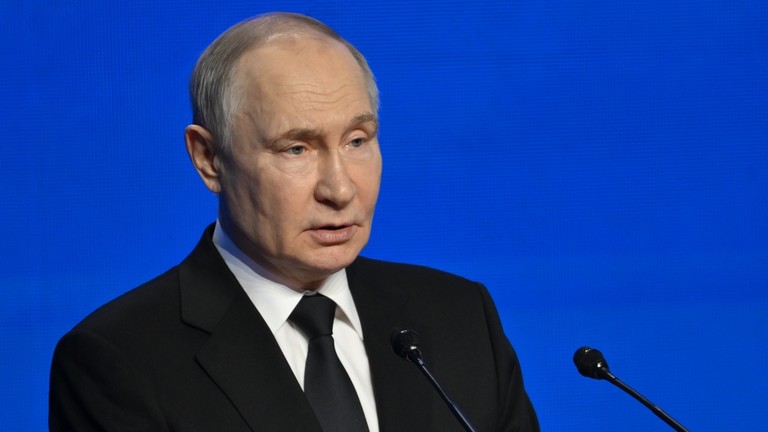Israeli forces continue bombarding Gaza, killing at least 42 people since dawn, dismissing criticism from the UK and the EU over the “monstrous” war in the enclave.
Authorities in Gaza say Israel’s “starvation policy” has killed at least 326 Palestinians since March 2, as the UN warns that 14,000 babies are at risk of dying within 48 hours.
The UN also says no aid has been distributed in Gaza because of Israeli restrictions despite a handful of aid trucks entering the territory.
Israel’s war on Gaza has killed at least 53,573 Palestinians and wounded 121,688, according to Gaza’s Health Ministry. The Government Media Office updated the death toll to more than 61,700, saying thousands of people missing under the rubble are presumed dead.
European and UK officials ratcheted up pressure on Israel over its latest offensive in Gaza, expanding the international outcry over the humanitarian crisis caused by the conflict.
Spanish Foreign Minister Jose Manuel Albares said the European Union should use diplomatic measures and possibly even sanctions to persuade Prime Minister Benjamin Netanyahu to halt the assault.
Britain, France and Canada Condemn Israel’s Expansion of Gaza War
Israel’s threats to drastically escalate the war in Gaza and its blockade of humanitarian aid to a Palestinian population at risk of famine have drawn the sharpest condemnation yet from some powerful Western allies since the conflict began 19 months ago.
On Tuesday, Britain said it was suspending talks with Israel on expanding a free-trade agreement. The day before, Britain, France and Canada issued a rare public reprimand of Israel, demanding it cease the renewed military offensive.
“We have always supported Israel’s right to defend Israelis against terrorism,” a joint statement by the three countries said. “But this escalation is wholly disproportionate.”
The message made clear that Israel’s conduct of the war in Gaza, the high Palestinian death toll and the abysmal humanitarian conditions in Gaza were pushing some of the country’s most powerful international supporters to the limits of what they would tolerate.
Israel is threatening to take full control of Gaza in the next stage of the war and hem Gazans into even more limited zones. Israel has also been blocking humanitarian aid from Gaza for more than two months, even as the U.N. warns that the population is under threat of famine.
This weekend, Israel said it would begin allowing some humanitarian aid to flow into Gaza. But the authorities let only five trucks in on Monday.
Britain, France and Canada called the expanded Israeli campaign against Hamas in Gaza and the withholding of aid “egregious actions” that cannot continue.
“If Israel does not cease the renewed military offensive and lift its restrictions on humanitarian aid, we will take further concrete actions in response,” the statement said.
Prime Minister Benjamin Netanyahu of Israel said Britain, France and Canada had handed a “huge prize” to Hamas. He accused them of tacitly encouraging a repeat of the Oct. 7, 2023, attacks, that killed some 1,200 people in Israel, with 250 taken as hostages to Gaza.
“This is a war of civilization over barbarism,” Mr. Netanyahu said on social media. “Israel will continue to defend itself by just means until total victory is achieved.”
The statements from allied countries were a distinct contrast from the early days after the 2023 attack, when governments rushed to back Israel. But as the death toll in Gaza grows and suffering deepens, diplomatic support is fading.
Israel has killed more than 53,000 Palestinians in Gaza, according to Gazan health officials, who do not distinguish between civilians and combatants.
The United States, Israel’s most powerful patron, has not publicly criticized the renewed Israeli offensive. But President Trump has increasingly bypassed Mr. Netanyahu, cutting a separate deal with Hamas to free the last living American hostage and skipping Israel on his trip to the Middle East last week.
On Friday, Mr. Trump said “a lot of people are starving” in Gaza under the Israeli blockade and the United States wanted to help alleviate the suffering.
In Britain on Tuesday, Foreign Secretary David Lammy announced in Parliament the suspension of free-trade talks with Israel, condemning what he said were Mr. Netanyahu’s plans to “drive Gazans from their homes into a corner of the strip to the south and permit them a fraction of the aid that they need.”
European Officials Step Up Pressure on Israel Over Gaza War
The European Union will review its wide-ranging trade and cooperation agreement with Israel over its widened offensive in Gaza and its failure to fully lift a two-month aid blockade.
The decision came on Tuesday after 17 of the bloc's 27 foreign ministers backed the move, tabled earlier this month by the Dutch foreign minister Caspar Veldkamp.
It means the EU executive will now launch a review to establish whether Israel has violated its human rights obligations under Article 2 of the EU-Israel Association Agreement, a broad-ranging pact that defines the trading and diplomatic relations between both sides.
"It is clear from today's discussions that there is a strong majority in favour of a review of article 2 of our Association Agreement with Israel," the EU's High Representative for Foreign Affairs, Kaja Kallas, told reporters in Brussels.
"We will launch this review and in the meantime, it is up to Israel to release more humanitarian aid."
The EU is Israel’s biggest trade partner, with the trading relationship valued at more than €45 billion a year.
Ireland and Spain first tabled the prospect of re-opening the Association Agreement in a yet-unanswered letter to European Commission President Ursula von der Leyen 15 months ago, but failed to secure the firm backing of any other EU country.
But the move gained new momentum in recent weeks when the Netherlands, considered a firm ally of Israel, said that Israel's “humanitarian blockade” on Gaza, where a limited quantity of critical supplies entered for the first time in more than eleven weeks on Monday, is in "violation of international humanitarian law" and therefore of Article 2.
Nine member states — Belgium, Finland, France, Ireland, Luxembourg, Portugal, Slovenia, Spain and Sweden — had publicly backed the Netherlands' proposal ahead of Tuesday's gathering of foreign ministers.
Denmark, Estonia, Malta, Poland, Romania and Slovakia also backed the review on Tuesday, according to diplomatic sources. Austria, a staunch supporter of Israel, did not take the floor to voice any opposition, another diplomat said.
Bulgaria, Croatia, Cyprus, the Czech Republic, Germany, Greece, Hungary, Italy and Lithuania were said to be against, while Latvia was "neutral", the sources also said.
Another proposal to ramp up pressure on Israel by introducing further sanctions on Israeli settlers responsible for violence in the West Bank was backed by 26 of the 27 member states but vetoed by Hungary.
The Swedish foreign minister, Maria Malmer Stenergard, had suggested that she would go further and “push for EU sanctions against individual Israeli ministers.”
Earlier on Tuesday, the UK suspended trade talks and summoned the Israeli ambassador over what it described as the “intolerable” offensive in Gaza. It came after the leaders of the UK, France, and Canada threatened “concrete actions” if Israel did not halt its campaign and aid lift restrictions.
The EU’s position on the Israel-Hamas war in Gaza, triggered by Hamas’ attacks on Israel on 7 October 2023, has always been deeply divided.
Former EU High Representative Josep Borrell personally tabled the prospect of suspending ties with Israel back in November, which ultimately led to the convening of a closed-door meeting between the Israeli foreign minister and his EU counterparts.
In that meeting, chaired by Borrell’s successor Kaja Kallas, calls for reviewing Article 2 were completely muted as a ceasefire was in force in Gaza.
The eleven-week blockade on the entry of aid seems to have triggered a shift in thinking among the 27.
Top diplomat Kaja Kallas said that while Israel's decision to allow a limited number of trucks to enter the enclave was "welcome", it was a "drop in the ocean".
"Aid must flow immediately and at scale," Kallas said.







